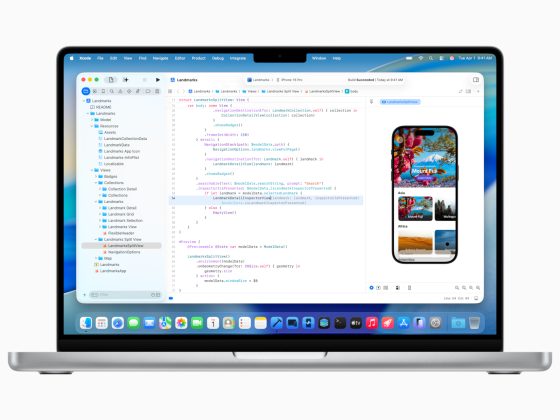Sure, compared to traditional IT, Kubernetes is great, but not much will beat public cloud in the long run.
Let’s start with some gospel: In IT, there is no gospel. No definite “thou shalts” that always apply, 100% of the time. Thus spake Werner Vogels, Amazon CTO: “Building evolvable software systems is a strategy, not a religion. And revisiting your architectures with an open mind is a must.” This goes for all smart IT strategies. The right answer for a given team in a certain circumstance won’t necessarily apply to another team in a slightly different circumstance. “It depends” is the only answer that always applies—usually.
From our partners:
Which brings me to VMware’s survey data on developers and Kubernetes. By some measures, according to the survey, there’s never been a better time to deploy Kubernetes. But the real question, as Google’s Richard Seroter highlights, is “compared to what?” For example, when 50% of developers reported they’ve derived “improved resource utilization” from Kubernetes, it’s worth asking what the “anchor point” is, to use Seroter’s term. “It’s easy to believe these developer benefits of Kubernetes if the comparison is to classic IT infrastructure,” he notes, and he’s right.
But of course, “it depends.”
Usually, sometimes
Let’s start by acknowledging that however much I may believe that running in the public cloud is generally the right answer, the reality of enterprise IT is that migrating to the cloud isn’t an automatic “yes” for every enterprise or every application within an enterprise. And, no, I’m not referring to the now-tired objections that used to be trotted out to discourage public cloud adoption. You know, things like “I work in a regulated industry” (there’s a cloud for that), “my application has sensitive security concerns” (the clouds offer better security than the vast majority of enterprises can muster), etc.
Rather, I’m talking about the reality that a particular team or application may not be ready to migrate to the public cloud. Teams may lack the requisite expertise, or the benefits of moving to the public cloud may simply not be enough to justify moving a particular application.
It’s also true that what’s trendy and cool (often for very good reasons) may simply not apply in your case. As Ampt CEO Jeremy Daly puts it, commenting on Amazon’s seeming about-face on serverless, “DON’T build monoliths… except when you should. DON’T build microservices… except when you should. DON’T use containers… except when you should. DO use serverless… except when you shouldn’t.” He’s being cheeky, but he’s also correct. As I stressed at the beginning, “It depends” is generally the right answer for most IT questions.
This is particularly true where Kubernetes is involved.
The Kubernetes kool kids
VMware has a healthy Kubernetes business, so it’s not surprising to see it source a survey that concludes that developers really like Kubernetes (shocking!). According to the survey, developers derive the following benefits from using Kubernetes:
- Improved resource allocation (50% of the developers surveyed reported this benefit)
- Eased application upgrades and maintenance (36%)
- Enabled the process of moving to the cloud (38%)
- Increased efficiency of hybrid model (37%)
- Shortened software development cycles (41%)
- Containerized monolithic applications (37%)
- Reduced public cloud costs (33%)
Before we get too excited by these results, it’s worth looking at it the way analyst Sarbjeet Johal does: According to this survey, the benefits of Kubernetes seem to be declining over time. In all but one area (reducing public cloud costs), the benefits of Kubernetes for organizations were lower in 2023 than in the previous three years. Not surprisingly, the report authors don’t call out these declining benefits.
Beyond this point, some of these benefits are perhaps true if compared against on-premises infrastructure but likely wouldn’t be if compared against public cloud. Indeed, some of the responses assume on-premises infrastructure; teams that run their applications in the cloud don’t have to worry about resource allocation or application upgrades or maintenance. Those are concerns for enterprises with applications that are stuck on premises, and that’s fine. Few to no enterprises of any size run all their applications in the public cloud, however much they may want to. So, it makes sense to call out such benefits, even if the benefit of getting off Kubernetes and into the cloud might mean that enterprises don’t even have to worry about things like upgrades. (Of course, for some applications, there is no “getting off of Kubernetes” because Kubernetes is the engine that will power multicloud for those applications, as InfoWorld’s David Linthicum outlines.)
It’s also true that however those “shortened” development cycles might be with Kubernetes relative to legacy infrastructure, those same development cycles might be even shorter if running in the public cloud. All of which is not to depreciate the very real benefits developers may derive from Kubernetes, but rather to suggest that those same developers shouldn’t presume the cloud journey is through once they’ve hit the halfway house of Kubernetes. How fast should they move to public cloud?
Well, it depends.
By: Matt Asay
Originally published at InfoWorld
Source: cyberpogo.com
For enquiries, product placements, sponsorships, and collaborations, connect with us at [email protected]. We'd love to hear from you!
Our humans need coffee too! Your support is highly appreciated, thank you!








